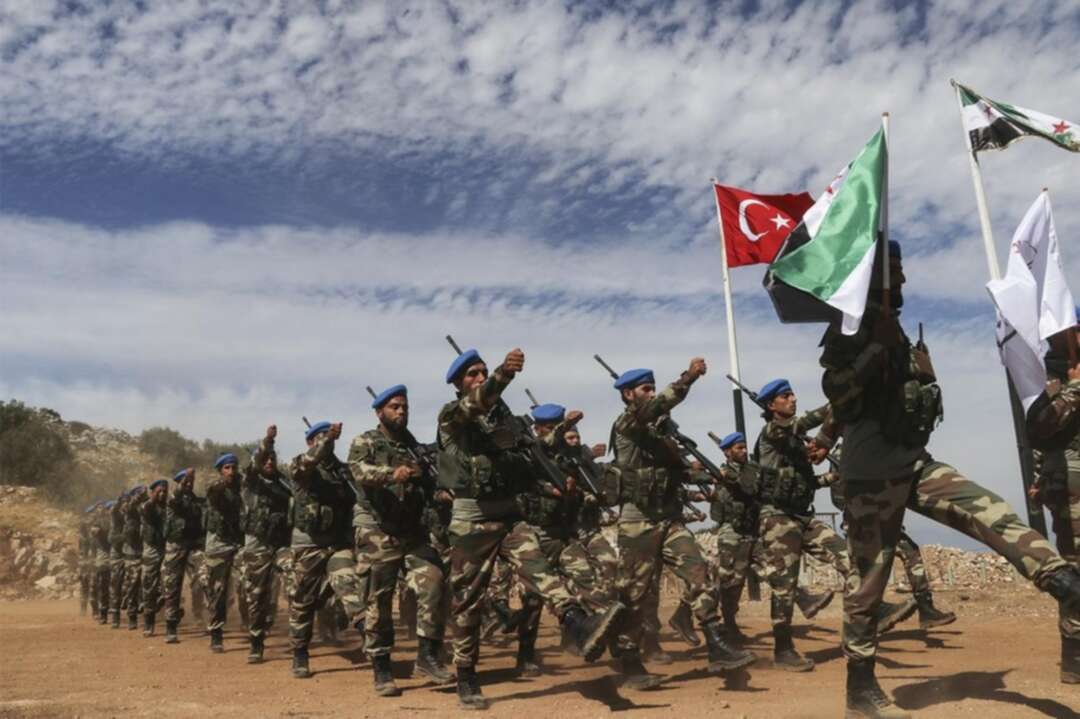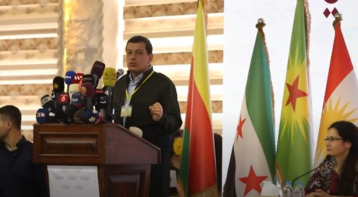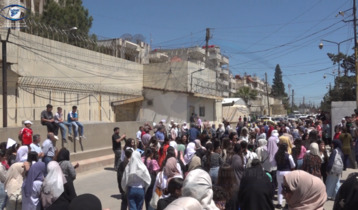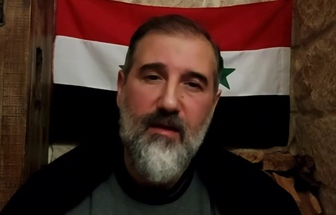-
Serious Human Rights Violations in Jarabulus: Militias Open Fire on Civilians
-
Lack of accountability and the spread of a culture of impunity within armed factions threaten to exacerbate violations, while repressive practices lead to erosion of popular support for militants, mak

The city of Jarabulus in eastern rural Aleppo has witnessed escalating tension due to practices described by local residents as "brutal" by elements of the so-called "Syrian National Army" supported by Turkey.
Local sources reported that one of the leaders of the "Border Guard" affiliated with these factions, known as "Nour Hayyan" and nicknamed "Abu Talas," opened fire on civilians who tried to cross the border into Turkey in search of job opportunities.
According to reports, "Abu Talas" and his elements arrested a number of civilians who tried to enter Turkey and punished them by shooting at their feet, practices that sparked widespread popular anger, especially among members of the Al-Qar'an tribe to which some of the victims belong.
This incident has led to a state of alert and tension among the tribe members in the Jarabulus area, threatening a potential escalation that could lead to armed clashes between tribes and armed factions.
These events reflect the state of chaos and lack of rule of law in areas under the control of Turkish-backed armed factions, and raise serious questions about the ability of these factions to govern the areas under their control in the future.
The continuation of these repressive practices and flagrant human rights violations undermines the questionable legitimacy of these factions and increases the alienation of local residents from them. In the long term, this may lead to continued erosion of the relative popular support for these factions, making their future in the Syrian scene highly doubtful.
The absence of accountability mechanisms and the spread of a culture of impunity within the ranks of these factions threatens to exacerbate violations and destabilize the areas under their control. This, in turn, could lead to further deterioration of the security and humanitarian situation in these areas.
In light of these developments, it seems that the future of the so-called "Syrian National Army" is at stake, and the continuation of these practices may hasten the end of these factions, especially with increasing international and regional pressures to find a comprehensive political solution to the Syrian crisis.
Levant-Follow up
You May Also Like
Popular Posts
Caricature
BENEFIT Sponsors BuildHer...
- April 23, 2025
BENEFIT, the Kingdom’s innovator and leading company in Fintech and electronic financial transactions service, has sponsored the BuildHer CityHack 2025 Hackathon, a two-day event spearheaded by the College of Engineering and Technology at the Royal University for Women (RUW).
Aimed at secondary school students, the event brought together a distinguished group of academic professionals and technology experts to mentor and inspire young participants.
More than 100 high school students from across the Kingdom of Bahrain took part in the hackathon, which featured an intensive programme of training workshops and hands-on sessions. These activities were tailored to enhance participants’ critical thinking, collaborative problem-solving, and team-building capabilities, while also encouraging the development of practical and sustainable solutions to contemporary challenges using modern technological tools.
BENEFIT’s Chief Executive Mr. Abdulwahed AlJanahi, commented: “Our support for this educational hackathon reflects our long-term strategic vision to nurture the talents of emerging national youth and empower the next generation of accomplished female leaders in technology. By fostering creativity and innovation, we aim to contribute meaningfully to Bahrain’s comprehensive development goals and align with the aspirations outlined in the Kingdom’s Vision 2030—an ambition in which BENEFIT plays a central role.”
Professor Riyadh Yousif Hamzah, President of the Royal University for Women, commented: “This initiative reflects our commitment to advancing women in STEM fields. We're cultivating a generation of creative, solution-driven female leaders who will drive national development. Our partnership with BENEFIT exemplifies the powerful synergy between academia and private sector in supporting educational innovation.”
Hanan Abdulla Hasan, Senior Manager, PR & Communication at BENEFIT, said: “We are honoured to collaborate with RUW in supporting this remarkable technology-focused event. It highlights our commitment to social responsibility, and our ongoing efforts to enhance the digital and innovation capabilities of young Bahraini women and foster their ability to harness technological tools in the service of a smarter, more sustainable future.”
For his part, Dr. Humam ElAgha, Acting Dean of the College of Engineering and Technology at the University, said: “BuildHer CityHack 2025 embodies our hands-on approach to education. By tackling real-world problems through creative thinking and sustainable solutions, we're preparing women to thrive in the knowledge economy – a cornerstone of the University's vision.”
opinion
Report
ads
Newsletter
Subscribe to our mailing list to get the new updates!






















